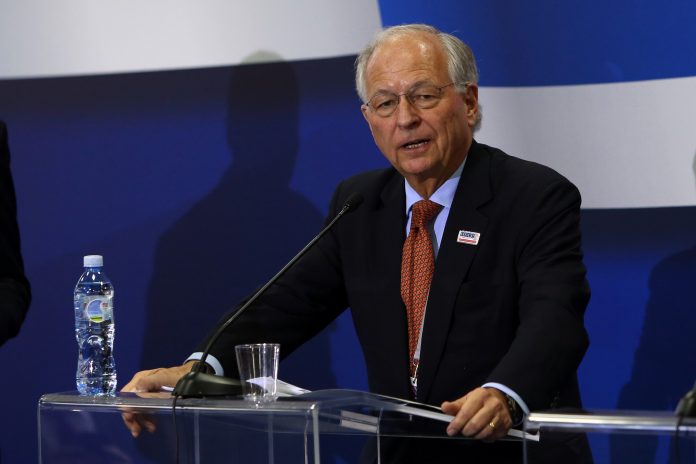The Munich Security Conference is one of those events to which few lay people pay much attention as it is a gathering of foreign policy and security elites primarily from Europe and North America. It is not a policy making body, but it is forum where important issues are discussed, albeit frequently within the narrow bandwidth of the trans-Atlantic foreign policy establishment consensus and, more importantly, where these complex alliances are maintained through official and unofficial interactions and relationships.
Over the last three conferences the Trump administration’s commitment to these relationships has been a major question. This year it appears this question has been answered. It is now apparent to most of the countries that have been America’s closest allies for more than half a century, that the US president is no longer on the side of democracy, liberalism and the trans-Atlantic alliance. At this year’s conference, American officials did not address the important of these values and these relationships, instead choosing to berate European countries for not breaking the treaty they, and the US, had made with Iran. In general, the US officials who spoke at the conference, said nothing to support these relationships, choosing instead to focus on a message of America First, while asserting that European countries are not doing enough to support what amounts to America’s agenda.
The only exception to this was former vice-president Joseph Biden who tried to assure the gathering, referring to the current American foreign policy and presidential administration, that “This too shall pass. We will be back.” Biden’s optimism is refreshing, but it is more the product of an adult lifetime swimming in the comforting waters of the trans-Atlantic alliance than it is a timely analysis of what occurred at Munich. The closing comments of Wolfgang Ischinger, the Chair of the conference, were more accurate that Biden’s optimism. “Some speakers were less interested in putting the pieces back together than in creating more disarray in our international system.” Given that Ischinger had opened the conference by referring to a “leadership vacuum,” it is clear to whom he was referring.
It is now apparent to most of the countries that have been America’s closest allies for more than half a century, that the US president is no longer on the side of democracy, liberalism and the trans-Atlantic alliance.
The Trump administration behaving confrontationally towards longstanding allies and Donald Trump himself being more comfortable around authoritarian leaders like Russia’s Vladimir Putin or China’ Xi Jinping, rather than elected leaders of western democracies, is not news. However, this year’s conference demonstrated the longer term impact of this. While Biden’s comments are probably true, because everything passes eventually, he seems to miss the point that the damage is already done. It may be possible to rebuild this relationship, but it will take a lot more time than one election cycle.
For decades, one America’s most valuable assets in the economic, security and foreign policy sectors, was its stability. This is why the dollar became the most trusted currency in the world and why the US was able to lead the way in crafting alliances and relationships that benefited our allies as well as ourselves. Trump has destroyed that stability. Today our European allies look at the Trump administration and recognize if the US can elect somebody like him once, it can do it again. The forces in American society that elected Trump are unlikely to go away simply because a Democrat wins an election in 2020. Those forces have been cultivated and activated by this administration and in the 2016 campaign, but they are here to stay. As long as that is true, the trans-Atlantic alliance is under threat and America can never be trusted the way it once was to honor its word and fulfill its commitments to its allies.
Today our European allies look at the Trump administration and recognize if the US can elect somebody like him once, it can do it again
Ironically, while it is easy, and in fact essential, to lay most of the proximate blame for this at the feet of Donald Trump, some responsibility lies with the foreign policy establishment itself who for too long pursued policies that were never fully explained to the American people, spoke down to those who disagreed with them and, in too many cases, never met a war or intervention they didn’t like. Trump exploited the American people’s resentment of that too, but he didn’t create it. Trump has also built upon that disconnect between foreign policy elites and the American people to pursue policies that antithetical to American interests.
In Munich this year, we saw evidence that America’s traditional allies, regardless of Biden’s pleas, are not going to simply wait out the Trump administration. Instead, they are going to ignore the browbeating they have received from American officials, for honoring a treaty no less, and move forward with planning security structures and relationships that work for them, while knowing that they can no longer depend upon the US as they have for decades. The clear winners there are China and Russia who look a lot more threatening, but also more appealing, with the US on the sidelines.
www.lincolnmitchell.com
Follow me on Twitter at: http://twitter.com/LincolnMitchell

